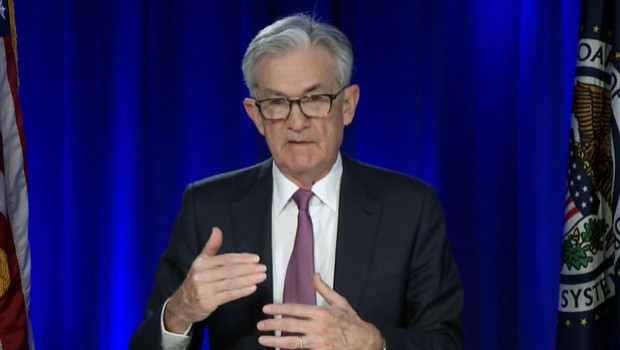Federal Reserve accelerates taper, doesn't commit to calendar for rate hikes

The Federal Reserve announced that it would taper its asset purchase programme more quickly, as expected, likely paving the way for interest rate hikes in 2022.
However, in his post-meeting press conference, the central bank's chairman, Jerome Powell, demured from providing an exact timeline for rate increases.
No decision had yet been taken as regards the timing gap between tapering and interest rate hikes, he said.
In its policy statement, the central bank said progress on vaccinations and strong policy support had seen economic indicators continue to strengthen, while describing the jobs market as "solid".
Hence, the pace at which it would reduce, or taper, its purchases of Treasury debt each month was raised to $20bn and the reduction of agency mortgage-backed securities by $10bn, both from January.
Furthermore, according to its so-called 'dot plot' diagram of top Fed officials' forecasts for the appropriate path for interest rates, three interest rate hikes were now seen in 2022, not one, as they had expected in September.
Powell also emphasised the importance of the high readings on the employment cost index for the third quarter, which were followed by strong jobs data and high CPI readings, saying that they prompted the Fed to decide to accelerate the tapering of its bond buying.
Yet policymakers also stressed the importance of the pandemic's path for the economy, including the possibility of new variants appearing.
"The path of the economy continues to depend on the course of the virus," the Federal Open Market Committee said in its policy statement.
"Progress on vaccinations and an easing of supply constraints are expected to support continued gains in economic activity and employment as well as a reduction in inflation. Risks to the economic outlook remain, including from new variants of the virus."
Commenting on the FOMC's decision, Ian Shepherdson, chief economist at Pantheon Macroeconomics, said: "The upshot of these new forecasts is that the Fed has moved into line with market thinking. The key question now is the timing of the first hike.
"If it weren’t for Omicron, we’d expect it in March, but experience elsewhere signals that the U.S. is about to see a massive, unprecedented surge in Covid cases, with unknowable - but likely temporary - consequences for the economy. We think this will delay the first hike until May, with the next moves in September and December."